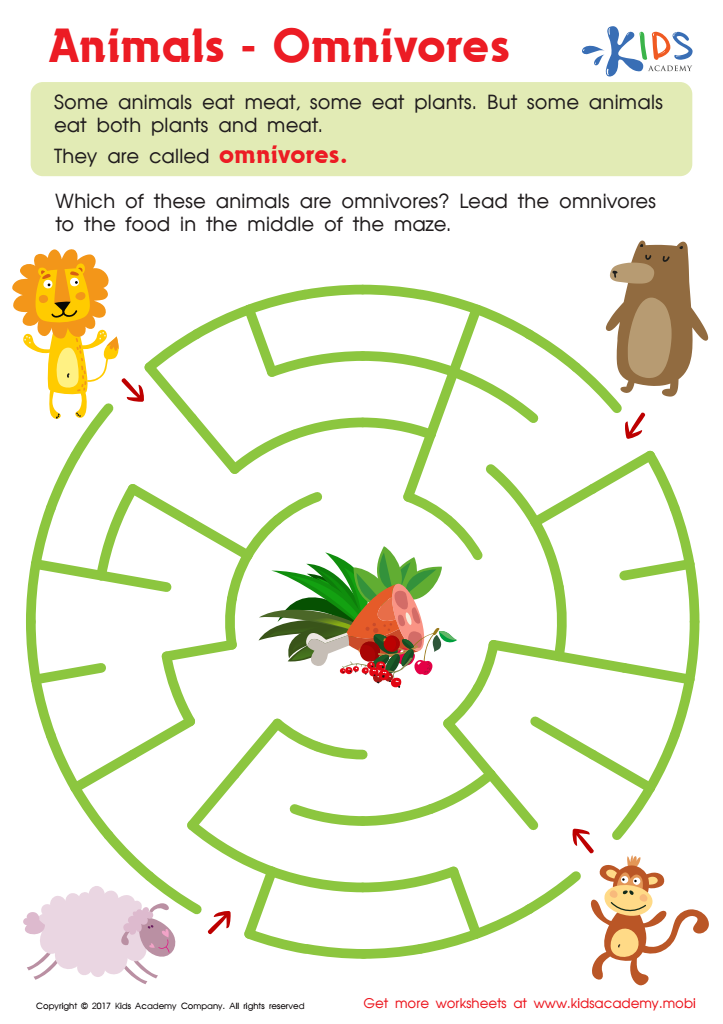Knowledge on omnivores Worksheets for Kids
1 filtered results
-
From - To


Omnivores Animals Worksheet
Question/Answer
What does the Knowledge on omnivores skill mean when it comes to Grade 2 Life Science learning?
The "Knowledge on omnivores" skill in Grade 2 Life Science learning involves understanding that omnivores are animals that eat both plants and animals. Grade 2 students learn to identify examples of omnivores, such as bears and humans, and understand the basics of their diets. This concept introduces children to diverse animal diets and broadens their understanding of the natural world.
How to train the Knowledge on omnivores skill in Grade 2 students learning about Life Science?
To train Grade 2 students on the concept of omnivores in Life Science, use interactive activities like matching games with pictures of animals and their food sources, storytelling that includes omnivorous animals and their diets, and simple experiments or observations of live or virtual omnivores.
How does the mastery of the Knowledge on omnivores skill affect a student's performance at an early age?
Mastery of knowledge on omnivores at an early age positively affects a student's performance by enhancing their understanding of biological diversity, food chains, and ecosystems. This foundational knowledge fosters critical thinking, encourages curiosity about nature and science, and helps develop categorization and comparison skills, which are transferable to other academic disciplines, thus improving overall academic performance.
 Assign to the classroom
Assign to the classroom











